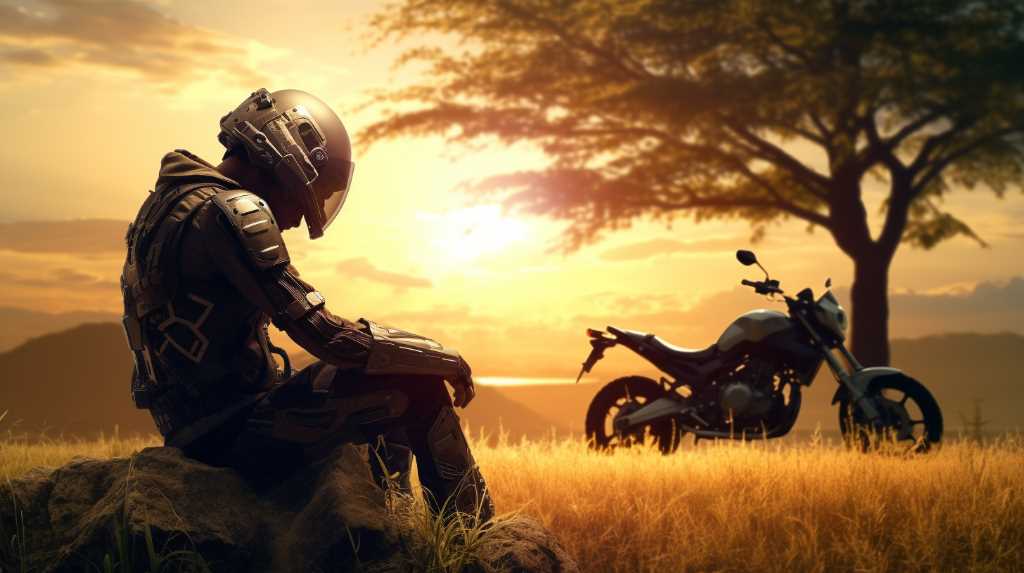
After a motorcycle crash, dealing with the trauma takes a careful and kind approach, looking after both your body and mind.
You might feel a whole range of emotions, like shock, anger, or sadness. It’s completely normal to feel this way after something so scary. Talking to a therapist or counselor can really help you work through these tough feelings.
To lower your stress, you might try deep breathing or meditation. These can help calm your nerves and improve your mood. Getting back into a regular daily schedule can also help things feel more normal again.
It’s also a good idea to talk to people who’ve been through the same thing. They understand what you’re going through, and that can be comforting.
Every step you take is part of the journey to get better, so it’s important to be patient with yourself and take things one day at a time.
Acknowledge and Accept Your Feelings
Understanding and accepting your own emotions is important after a motorcycle crash. When you go through something as scary as this, you might feel many strong emotions, like shock, anger, or sadness. It’s normal to feel this way, and it’s part of getting better.
If you try to hide or ignore these emotions, it could make it harder to heal emotionally and might cause more problems in the future. Letting yourself feel these emotions shows you’re aware of what’s happening inside you, and it takes bravery. It’s not a sign of weakness.
When you face these feelings, it helps you deal with the trauma. This is an important step in moving forward and feeling like you’re back in charge of your life.
Seek Professional Support
Getting help from mental health experts is key after a motorcycle crash, as it can take a toll on your mind in different ways, and sometimes the effects aren’t felt right away. Talking to psychologists, psychiatrists, or therapists can really help you heal in a safe and structured way. They know how to use treatments that are proven to work, like cognitive-behavioral therapy or EMDR, to help you deal with the trauma and learn ways to handle the tough feelings that come with it.
Choosing to get help is a brave step forward. It shows that you understand how deeply trauma can affect your mental health and that having a professional guide you can make a big difference in getting back your sense of control and happiness.
Develop Stress-Reduction Techniques
After a motorcycle accident, it’s really important to know how to calm your mind and body. Dealing with the stress and fear that come after something scary like that can be tough. But there are some good ways to feel better.
Try taking slow, deep breaths, or relax your muscles one by one. Mindfulness meditation is also a great idea—it’s just paying attention to the present moment without judgment.
Doing some kind of exercise can help a lot, too. It makes your body release endorphins, which are like nature’s happy chemicals.
Also, there are simple things you can do to feel more grounded. For example, pay attention to what you can see, hear, touch, taste, or smell. Or take a moment each day to think about things you’re thankful for.
Re-establish a Routine
Getting back into a daily routine is an important step in getting better after a motorcycle crash. When your days are planned out, it helps you feel more in control and lessens the chaos you might be feeling. Start with easy tasks you know you can do to help build your confidence and give you a feeling of success.
For your physical health, do some gentle exercises if your doctor says it’s okay. For your mental health, try relaxing activities like deep breathing or working on a hobby you enjoy. The point isn’t to do as much as you did before the accident right away, but to slowly build up a stable daily plan. Think of this new routine as a framework that helps you heal step by step.
Connect With Other Survivors
Joining a group for people who have survived accidents like yours can be really helpful as you recover from your motorcycle accident. When you talk with others who have gone through the same thing, you feel less alone and can learn a lot from their experiences.
These groups are great for getting tips on how to handle the tough stuff that comes after an accident and for finding people who understand exactly what you’re going through. Meeting people who have turned their tough times into something positive can inspire you and give you hope.
It’s important to reach out to these survivor groups because they offer support and encouragement from people who know what it’s like, and that can make a big difference in your healing process.
Conclusion
Dealing with the mental impact of a motorcycle accident isn’t easy, but there’s a clear path to feeling better.
It’s important to face your feelings and work through them, which might mean talking to a therapist or counselor.
Managing stress is key, so try techniques like deep breathing or exercise.
Getting back into your usual routine can also help you feel more in control.
And don’t forget, there’s strength in numbers – joining a group of people who have been through similar experiences can be really supportive.
Taking these steps helps you heal and get back on track with your life after such a tough event.